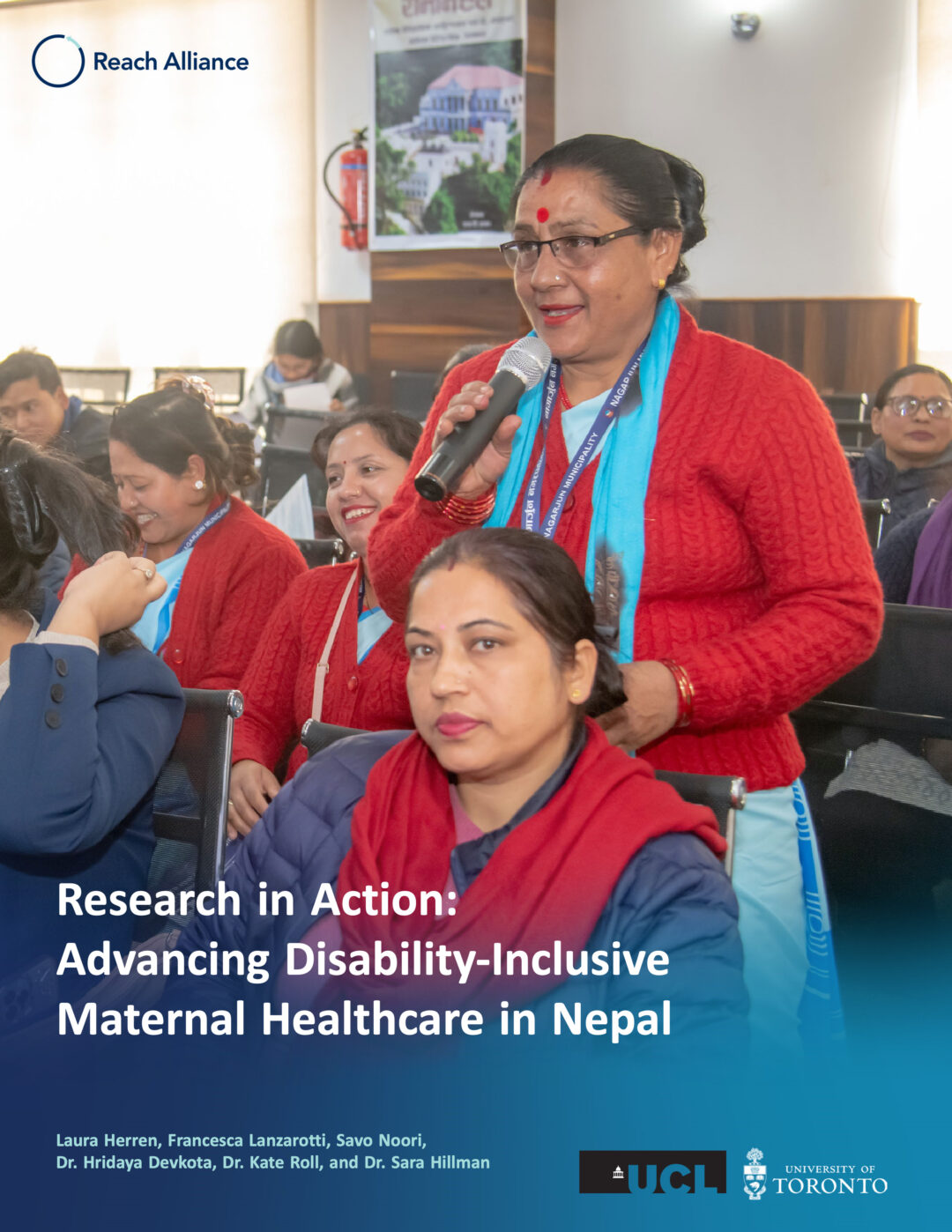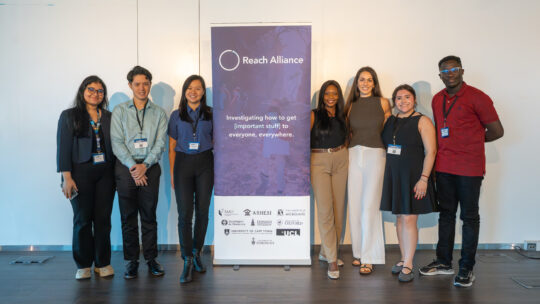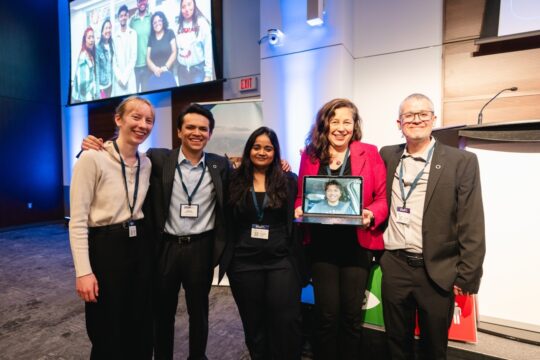News
Research in Action: Advancing Disability-Inclusive Maternal Healthcare in Nepal

The Reach Alliance is proud to announce the publication of its inaugural “Research in Action” report, a milestone in our commitment to inclusive research and global health equity. This pioneering report, titled Advancing Disability-Inclusive Maternal Healthcare in Nepal, represents a joint effort between Reach Alliance researchers at the University College London (UCL) and Nepali collaborators. The research team was led by UCL students Laura Herren, Francesca Lanzarotti, and Savo Noori, under the mentorship of Dr. Kate Roll from the Institute for Innovation and Public Purpose and Dr. Sara Hillman from UCL Population Health Sciences, as well as Nepal-based research partner Dr. Hridaya Devkota. Their collaborative efforts have produced a comprehensive analysis that not only informs policy but also empowers communities to advocate for inclusive healthcare practices.
On May 28, 2025, the Reach Alliance hosted a roundtable event at UCL’s Institute for Innovation and Public Purpose where the findings of this report were shared for the first time. Bringing together academics, policymakers, and practitioners, the roundtable sparked dynamic discussions on how best to implement the recommendations and improve maternal healthcare for women with disabilities not only in Nepal but also in other low-resource settings. The event emphasized the power of interdisciplinary collaboration and the vital role of research in driving real-world change.
Researcher Francesca Lanzarotti shared this reflection based on the policy-focused workshops hosted in Nepal, “Following the publication of Maternal Healthcare for Women with Disabilities in Nepal: Access and Quality report, our research team organized workshops to share the report’s outcomes and facilitate dialogue. The workshops brought together research participants and key local stakeholders to discuss the challenges present in Nepal’s maternal healthcare for women with disabilities. Importantly, these events provided a platform for the women themselves to share their experiences directly with decision makers. Through presentations and discussions, challenges in policy implementation and service delivery gaps were addressed, and the policy makers committed to prioritising inclusive initiatives. These workshops were a collective effort between UCL Reach researchers and faculty, and Nepali collaborators who worked together to conduct the initial case report. The collaboration ensured a localised and targeted approach, with the Nepal team guiding the logistical organisation and delivery, and the UCL team supporting on the design and resources creation. The co-design and co-delivery were essential in hosting meaningful workshops with impact contextualised to the local municipalities. Our initial objective was to disseminate the findings to conduct knowledge translation and create a more accessible version of the report. However, through the workshops, we achieved much more: we strongly believe in the research’s ability to drive actionable change, particularly with the first-hand experiences shared by the women. Their powerful stories are examples of research’s role in advocacy and driving change.”
This report marks a significant step in UCL’s expanded involvement with the Reach Alliance, building on previous successful collaborations and setting the stage for future projects aimed at achieving the United Nations Sustainable Development Goals.
At Reach we extend our heartfelt thanks to all contributors, including the UCL team and our Nepali partners for their unwavering commitment to advancing inclusive healthcare solutions.


